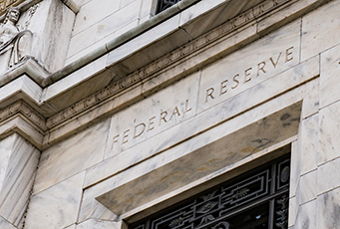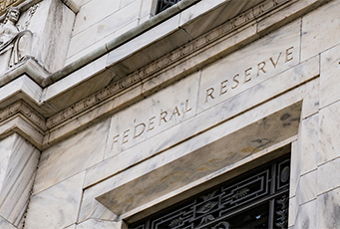Get financial clarity, insight, and analysis delivered straight to your inbox.
Subscribe to our weekly blog.
Easing Like Sunday Morning
Since they last raised rates in July 2023, the Fed has kept rates at their current level while inflation has declined significantly, employment has remained healthy, and GDP looks to be growing near 3%.
1st Quarter Market Update
While we may not be able to rely on a 10%-per-quarter pace from equities, there is still much to celebrate in how far we've come from peak inflation in 2022 and the economy's strength in early 2024.
Factors in Predicting Fed Rate Hikes
While Federal Reserve rate hike predictions are essential for navigating financial markets, their historical accuracy is subject to various factors and limitations.
Is This Goodbye to Rate Hikes?
Chairman Powell, for the first time, discussed the possibility of lowering interest rates in 2024 to avoid harming the economy. This was a substantial change from the Fed's previous stance, which was effectively "it's too soon to talk about lowering rates.
Did the Federal Reserve Stick the (Soft) Landing?
So far, Federal Reserve Chair Jerome Powell should be applauded for his decisions and results. Some may say the Federal Reserve put us in this position in 2021 when they believed inflation was transitory.
Update from the Federal Reserve
While the switch from a 75-basis point to a 50-basis point hike may not seem like a huge deal, it is an important shift. The problem with interest rate policy is that while rate hikes go into effect immediately, their impact on the economy as a whole takes a lot longer to work through the system.
The Doves Have Left the Nest
Statements by Fed Chairman Jerome Powell on August 26th poured cold water on the stock market rally. Powell has been using strong language to reiterate the Federal Reserve's position that tackling inflation remains the central bank's number one priority, and they intend to maintain this policy even if it causes "pain" to the markets or economy.
Hawkish Fed: Good for Your Portfolio?
The Fed has tremendous influence over the economy and the markets. After years of stimulus, it must navigate an unenviable balancing act of combating inflation without rattling confidence in the markets.
Should You Buy Bonds in 2022?
Owning bonds today is still relevant because they provide steady income and protect portfolios when risky assets fall. If you rely on your portfolio for spending, the bond portion should protect your spending level.
The Fed Tapering: What Does It Mean?
The rate at which the Federal Reserve has been purchasing assets is more than we have ever experienced. What signals does that send to investors, and how does the stock market react when the Fed buys or sells assets?


























